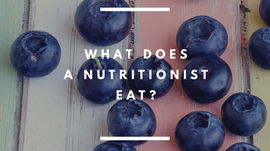The 2017 Dirty Dozen / Clean Fifteen
- Karolina Lukaszewicz
- Mar 17, 2017
- 2 min read
The 2017 Dirty Dozen is here! Environmental Working Group (EWG) released the newest list of the conventionally grown fruits and veggies that contain the most pesticides in the US, and the UK have adopted these guidelines over the last few years. Even though our farming regulations might be slightly different, I think that this list is still a good guideline. I suggest choosing organic as often as possible, but if you’re on a budget or your selection is limited, The Dirty Dozen List will help you focus your attention on avoiding the most contaminated fruits and veggies.
Please note that the data used to create this list is from the produce tested as it is typically eaten, which means that it's been thoroughly cleaned before analysis.
So here come the worst offenders:
1. Strawberries
2. Spinach
3. Nectarines
4. Apples
5. Peaches
6. Pears
7. Cherries
8. Grapes
9. Celery
10. Tomatoes
11. Sweet bell peppers
12. Potatoes
Key findings:
Nearly all samples of strawberries, spinach, peaches, nectarines, cherries and apples tested positive for residue of at least one pesticide.
The most contaminated sample of strawberries had 20 different pesticides.
Spinach samples had an average of twice as much pesticide residue by weight than any other crop. Three-fourths of spinach samples had residues of a neurotoxic pesticide banned in Europe for use on food crops—it's part of a class of pesticides that recent studies link to behavioral disorders in young children!
By EWG's Clean Fifteen is a list of conventionally grown produce least likely to contain pesticide residues, and this includes:
1. Sweet corn *
2. Avocados
3. Pineapple
4. Cabbage
5. Onions
6. Frozen sweet peas
7. Papayas *
8. Asparagus
9. Mangos
10. Eggplant
11. Honeydew Melon
12. Kiwi
13. Cantaloupe
14. Cauliflower
15. Grapefruit
* A small amount of sweet corn and papaya sold in the US is produced from genetically modified seeds. Buy organic varieties of these crops if you want to avoid genetically modified produce.
Key findings:
Avocados and sweet corn were the cleanest: only 1 percent of samples showed any detectable pesticides.
More than 80 percent of pineapples, papayas, asparagus, onions and cabbage had no pesticide residues. (Note: Some papayas are GMOs. Choose organic to avoid that.)
No single fruit sample from the Clean Fifteen tested positive for more than four types of pesticides. Yay! 😊




















Comments